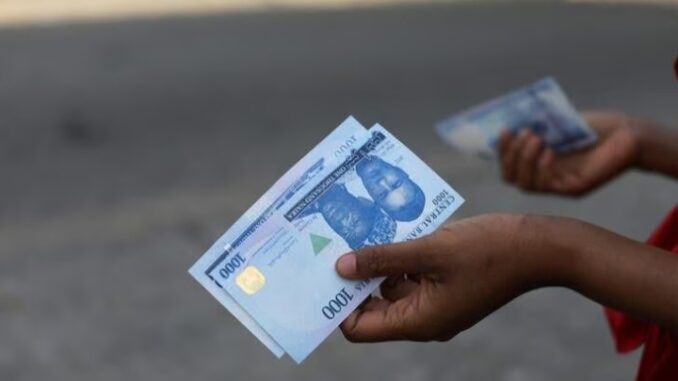
Nigeria’s annual inflation rose to its highest level in nearly two decades in July at 24.08% against 22.79% in June, worsening a cost-of-living crisis in Africa’s largest economy as President Bola Tinubu’s reforms continue to take effect.
Inflation in Nigeria has been in double digits since 2016, eroding savings and incomes and prompting the central bank to hike interest rates to their highest level in nearly two decades.
In the boldest reforms seen in years, Tinubu scrapped a popular but costly petrol subsidy, causing prices to triple, and ended restrictions on foreign exchange trading, which has weakened the naira more than 40%.
Food inflation, which accounts for the bulk of Nigeria’s inflation basket, rose to 26.98% in July from 25.25% in June.
ALSO READ: Fuel price hits N617 per liter in Nigeria
“The rise in food inflation on a year-on-year basis was caused by increases in prices of oil and fat, bread and cereals, fish, potatoes, yam and other tubers, fruits, meat, vegetable, milk, cheese, and eggs,” the statistics agency said.
Analysts including the World Bank had warned that a weaker currency and the fuel subsidy removal were likely to push inflation higher in the short term.
Acting central bank governor Folashodun Shonubi on Monday said plans were underway for measures that would impact the currency market, after the naira hit a record low on the parallel market due to dollar shortages on the official market where the currency has also weakened since the devaluation.
In July, at its first monetary policy meeting since Tinubu suspended central bank governor Godwin Emefiele, the bank raised its main lending rate by 25 basis points to 18.75%.
Tinubu, who is under pressure as prices soar following his reform agenda, has defended his action, saying Nigeria has saved over a trillion naira in just over two months since reforms were started, Reuters said.




